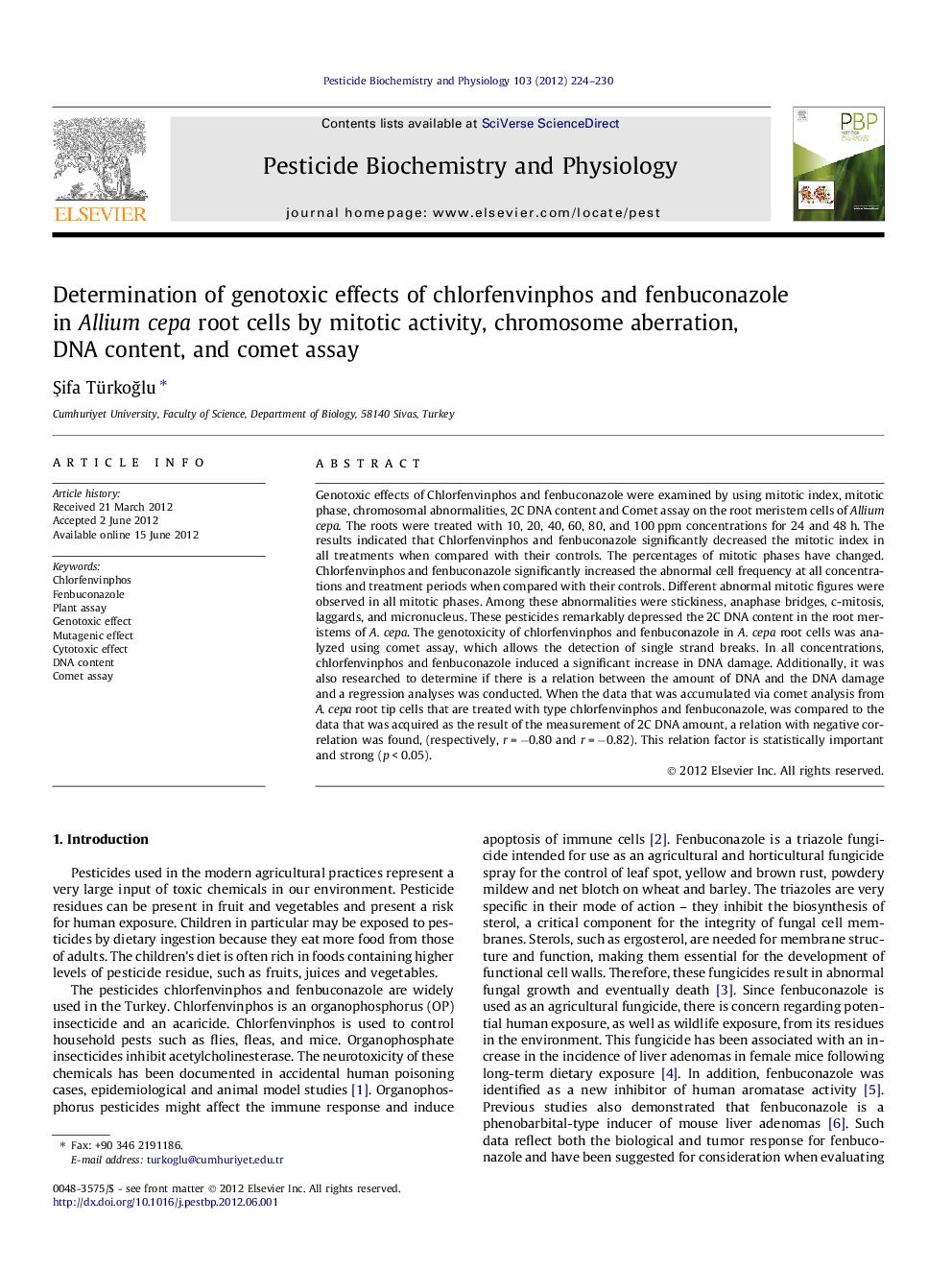| Article ID | Journal | Published Year | Pages | File Type |
|---|---|---|---|---|
| 2009397 | Pesticide Biochemistry and Physiology | 2012 | 7 Pages |
Genotoxic effects of Chlorfenvinphos and fenbuconazole were examined by using mitotic index, mitotic phase, chromosomal abnormalities, 2C DNA content and Comet assay on the root meristem cells of Allium cepa. The roots were treated with 10, 20, 40, 60, 80, and 100 ppm concentrations for 24 and 48 h. The results indicated that Chlorfenvinphos and fenbuconazole significantly decreased the mitotic index in all treatments when compared with their controls. The percentages of mitotic phases have changed. Chlorfenvinphos and fenbuconazole significantly increased the abnormal cell frequency at all concentrations and treatment periods when compared with their controls. Different abnormal mitotic figures were observed in all mitotic phases. Among these abnormalities were stickiness, anaphase bridges, c-mitosis, laggards, and micronucleus. These pesticides remarkably depressed the 2C DNA content in the root meristems of A. cepa. The genotoxicity of chlorfenvinphos and fenbuconazole in A. cepa root cells was analyzed using comet assay, which allows the detection of single strand breaks. In all concentrations, chlorfenvinphos and fenbuconazole induced a significant increase in DNA damage. Additionally, it was also researched to determine if there is a relation between the amount of DNA and the DNA damage and a regression analyses was conducted. When the data that was accumulated via comet analysis from A. cepa root tip cells that are treated with type chlorfenvinphos and fenbuconazole, was compared to the data that was acquired as the result of the measurement of 2C DNA amount, a relation with negative correlation was found, (respectively, r = −0.80 and r = −0.82). This relation factor is statistically important and strong (p < 0.05).
Graphical abstractFigure optionsDownload full-size imageDownload as PowerPoint slideHighlights► Genotoxic effects of these pesticides were examined. ► While MI decreased, the chromosomal aberrations increased in all concentrations. ► These pesticides remarkably depressed the 2C DNA content in the A. cepa. ► DNA damage was also observed by Comet assay. ► They are genotoxic and mutagenic for A. cepa cells, even at low concentrations.
